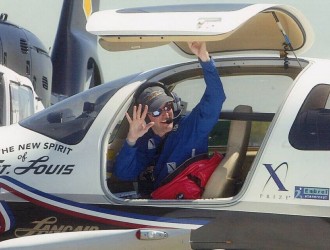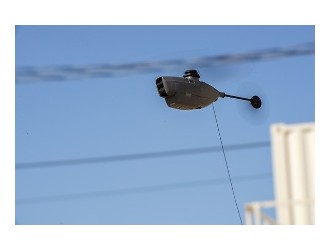
The FAA, the Department of Defense (DOD), the Department of Homeland Security (DHS) and NASA have participated on the ExCom since 2009; more recently the committee’s membership has been expanded to include the departments of Commerce, Justice and the Interior, as well as the White House’s Office of Science and Technology Policy and National Security Council, Gibson said. “As security concerns continue to increase, I think this will be a critical group to hold us together on those issues,” he told the DAC.
Under section 2206 of the FAA Extension, Safety and Security Act that became law last July, Congress directed the FAA, in consultation with the DOD, DHS and other agencies, to conduct a pilot demonstration program to ensure that drone-detection systems they use to ward off “errant or hostile” unmanned aircraft do not adversely affect airport operations and air traffic services. Congress authorized spending $6 million on the “airspace hazard mitigation” effort over 18 months.
The FAA started studying counter-drone technology in early 2016 at Atlantic City International Airport, a demonstration that represented the first drone detection research at a U.S. commercial airport. The effort continued to include testing at John F. Kennedy International Airport with the FBI, the DHS and other participants; at Eglin Air Force base, Florida, as part of the DOD’s annual “Black Dart” counter-UAS exercise; at Denver International Airport; and most recently at Dallas-Fort Worth International Airport.
“Of interest, we’re not the only folks working this,” Gibson related. The DHS and the Army recently conducted an exercise in New Orleans to test drone-detection systems in an urban environment, he said. “We didn’t participate but we did observe,” he added. “There were 17 systems set up for a number of days and nights to include Coast Guard vessels. They even went in and around the Super Dome and closed streets…and set systems up on rooftops and elsewher.”
The New Orleans exercise revealed that “most of the Army systems encountered a lot of the same issues that we witnessed in our venues in and around airports, including radio frequency detection systems that were inhibited by line of sight and also by interference in a highly dense RF environment,” Gibson reported. “Radar cannot always detect drones; when they’re loitering zero Doppler [effect] becomes a bit of a problem as well as when they’re in and around other vessels and vehicles. In fact, at one point a transport ship transiting the area basically denied the radar any opportunity to detect systems in and around it.”
In March, the DHS announced that it had issued a request for information to industry under the Technical Assessment of Counter Unmanned Aerial Systems Technologies in Cities (TACTIC) program to assess counter-UAS technologies in an “operationally relevant” environment. Findings from the two-part demonstration taking part this summer and fall “will be included in an interagency compendium of C-UAS solutions being updated semi-annually for the National Security Council,” the department said. It also plans to share the findings with federal, state and local law enforcement agencies.





